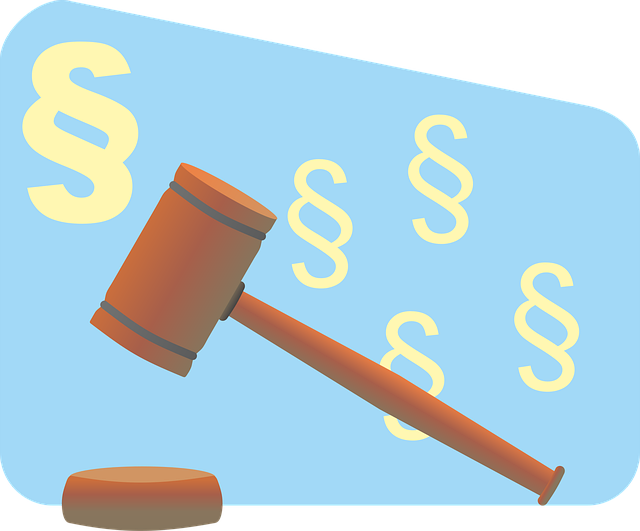The Healthcare Industry is vulnerable to securities scams due to complex regulations and high-value transactions. Compliance professionals play a vital role in identifying fraudulent stock promotions targeting elderly investors. Robust internal controls, staff training, auditing, and dispute resolution processes are key defenses against scams. Proactive measures like meticulous documentation and transparent communication protect investments and safeguard industry integrity. Effective collaboration among regulators, legal experts, and communities fosters a transparent environment deterring fraudulent activities.
In the dynamic landscape of the healthcare industry, investors face a complex web of securities scams that can lead to significant financial losses. This article exposes common schemes plaguing the sector, highlighting the vital role of compliance as a shield against fraudulent activities. We delve into effective dispute resolution strategies for investors and explore regulatory measures aimed at preventing future financial frauds. By understanding these key aspects, healthcare industry stakeholders can navigate markets with enhanced vigilance and protection.
- Unveiling Common Securities Scams in Healthcare
- Compliance: A Shield Against Fraudulent Schemes
- Dispute Resolution Strategies for Investors
- Regulating and Preventing Future Financial Frauds
Unveiling Common Securities Scams in Healthcare

The Healthcare Industry is often a target for securities scams due to its complex regulatory landscape and high-value transactions. Scammers exploit loopholes in regulations, taking advantage of investors’ trust in medical advancements and innovative treatments. One common scheme involves fraudulent stock promotions, where con artists push shares of non-existent or over-hyped healthcare companies, promising substantial returns. These scams often target the elderly and unsuspecting investors who may not be as familiar with market trends and red flags.
Uncovering these frauds requires a thorough understanding of industry-specific practices and a keen eye for detail. Compliance professionals play a pivotal role in navigating all stages of the investigative and enforcement process, from identifying suspicious activities to coordinating with regulatory bodies and legal teams. By staying abreast of emerging scams, such as those involving telemedicine stocks or medical device startups, they can provide valuable insights for both investors and general criminal defense attorneys specializing in white-collar and economic crimes.
Compliance: A Shield Against Fraudulent Schemes

In the highly regulated healthcare industry, compliance plays a pivotal role in shielding against fraudulent schemes that target both corporate and individual clients. Stringent adherence to laws and regulations, such as those enforced by regulatory bodies and oversight organizations, acts as a robust barrier against unscrupulous practices that often surface in high-stakes cases. By implementing robust internal controls, auditing mechanisms, and ongoing training for staff, healthcare institutions can mitigate risks effectively.
Moreover, effective dispute resolution processes are integral to maintaining integrity within the industry. Skilled professionals who specialize in compliance matters work tirelessly to uncover fraudulent activities, ensuring accountability through legal channels. This not only protects patients’ interests but also sends a strong message to potential perpetrators, deterring them from engaging in such illicit schemes. The collaborative efforts of regulatory bodies, legal experts, and the philanthropic and political communities further strengthen the ecosystem, fostering an environment that prioritizes transparency and integrity over profit-driven fraudulent activities.
Dispute Resolution Strategies for Investors

When navigating the complexities of the healthcare industry, investors must be aware of potential securities scams and have a solid dispute resolution strategy in place. The dynamic nature of the healthcare sector requires a nuanced approach to compliance and regulatory issues. With increasing scrutiny from both philanthropic and political communities, understanding all stages of the investigative and enforcement process is paramount.
Effective dispute resolution strategies involve proactive measures such as meticulous documentation, transparent communication channels, and regular audits. For instance, investors can leverage general criminal defense tactics to mitigate risks, ensuring their actions are well-documented and in line with legal frameworks. This proactive stance not only protects against potential scams but also facilitates swift and fair resolutions should disputes arise, ultimately safeguarding investments within the healthcare industry.
Regulating and Preventing Future Financial Frauds

As we uncover the intricate web of securities scams, it becomes evident that robust regulation and proactive measures are vital to safeguard investors and prevent future financial frauds. The healthcare industry, known for its complex regulatory landscape, must remain vigilant against deceptive practices that target vulnerable individuals and institutions. By strengthening compliance standards, industry players can establish a resilient defense against potential scams. This involves staying abreast of evolving regulations and integrating effective internal controls to mitigate risks.
Dispute resolution mechanisms play a pivotal role in the aftermath of fraudulent schemes. Efficient processes ensure that wronged investors receive justice and financial redress. Skilled white-collar defense attorneys are instrumental in navigating these high-stakes cases, protecting the interests of their clients, and upholding the integrity of the industry. Through proactive compliance measures and swift dispute resolution, the healthcare sector can foster an environment that deters fraudulent activities and promotes ethical business practices.
The healthcare industry, like any sector, is susceptible to securities scams that can result in significant financial losses for investors. By understanding common schemes targeting the healthcare realm and implementing robust compliance measures, individuals and entities can fortify their defenses against fraudulent activities. Moreover, effective dispute resolution strategies and regulatory enhancements play pivotal roles in safeguarding investors and fostering trust within the industry. Through collective efforts to expose, prevent, and rectify securities scams, we can ensure a more transparent and secure investment landscape for all participants, particularly in the dynamic healthcare sector.






